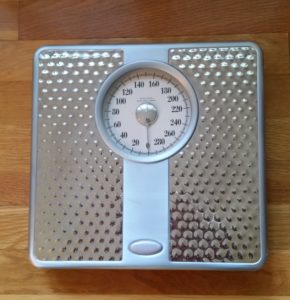 Intermittent fasting works! A recent study reviewed 130 studies and found that intermittent fasting could help reduce weight, body mass index (BMI), body fat, bad cholesterol, fasting blood sugar, and blood pressure.
Intermittent fasting works! A recent study reviewed 130 studies and found that intermittent fasting could help reduce weight, body mass index (BMI), body fat, bad cholesterol, fasting blood sugar, and blood pressure.
Two types of intermittent fasting appear to be best and the most effective for weight loss: modified alternate-day fasting and the 5:2 diet. Modified alternate-day fasting is alternating days where one day you eat as usual, but no more than 600 calories the next day. The 5:2 diet is similar, but involves 2 days per week of zero or very low-calorie eating and 5 days of normal eating.
Less effective were time-restricted eating (can only eat during certain hours of the day, and fast the remaining 12 to 24 hours), and zero calorie alternate-day fasting (no food consumed every other day).
A second study (scroll down) found that while the 5:2 diet was initially effective, people had trouble keeping to it long-term.
At this point the medical advice is: find a type of intermittent fasting that you can stick with, and try it!
Excerpts from Medscape: Intermittent Fasting Works, at Least in the Short Term
Intermittent fasting can lead to weight loss and other health benefits, at least in the short-term, new research suggests.
Combined results from a total of 130 clinical trials show that intermittent fasting could help reduce weight, body mass index (BMI), body fat, "bad" cholesterol, fasting blood sugar, and blood pressure, among other risk factors associated with obesity.
Two specific types of intermittent fasting were associated with significant weight loss and other health benefits. One, called modified alternate-day fasting, involves alternating one day of eating as usual with consuming no more than 600 the next day.
The other, called the "5:2 Diet" is similar, but involves 2 days per week of zero or very low-calorie eating and 5 days of normal eating.
Less beneficial were time-restricted eating, involving fasting 12-24 hours per day, and "zero calorie alternate-day fasting," where no food is consumed every other day.
"Our results support the role of intermittent fasting, especially modified alternate-day fasting, in adults with overweight or obesity as a weight loss approach with other health benefits. But individuals have to consult their doctors first," lead author of the research, Chanthawat Patikorn, of Chulalongkorn University in Thailand says.
And there's a major snag: most of the studies lasted only about 3 months. Among those lasting longer, the weight loss seemed to level off by about 6 months, either because the body adapted to the eating pattern or because the participants couldn't stick to the diets.
Only two diets, modified alternate-day fasting and 5:2, were associated with weight loss of 5% or more of total body weight in adults with overweight or obesity.
And with the 5:2 diet, the weight loss held up at 6 to 12 months. Modified alternate-day fasting was also associated with improvements at 2 to 12 months in heart disease risk factors such as total cholesterol, "bad" cholesterol, triglycerides, and blood pressure.
The findings were published online Dec. 17 in JAMA Network Open .
Another Trial Shows Modest Effect, Similar Endurance Problem
In a separate 1-year randomized trial published Nov. 17, 2021, in PLOS One, 300 adults with obesity were randomized to either a 5:2 diet with self-help instructions, the same diet plus six weekly group support sessions, or just standard advice about diet and physical activity.
The 5:2 self-help group stuck with it initially, but only a third were still following the diet by 6 months and only about a fifth by 1 year. Weight loss at 6 months and 1 year were similar between the 5:2 self-help and standard advice groups (about 4 pounds).
The 5:2 diet with group support was associated with more weight loss than 5:2 self-help at 6 weeks, but there was no difference at 1 year.
Looking at it more positively, 18% of the 5:2 self-help group had lost more than 5% of their body weight by 1 year, and participants gave the 5:2 plan favorable ratings.
